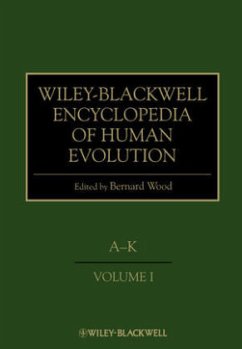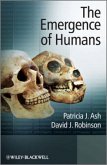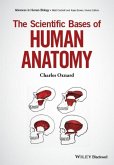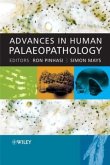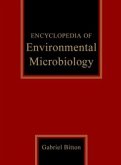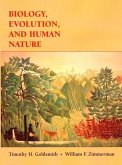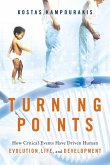This comprehensive A to Z encyclopedia provides extensive coverage of important scientific terms related to improving our understanding of how we evolved. Specifically, the 5,000 entries in this two-volume set cover evidence and methods used to investigate the relationships among the living great apes, evidence about what makes the behavior of modern humans distinctive, and evidence about the evolutionary history of that distinctiveness, as well as information about modern methods used to trace the recent evolutionary history of modern human populations. This text provides a resource for everyone studying the emergence of Homo sapiens.
Visit the companion site www.woodhumanevolution.com to browse additional references and updates from this comprehensive encyclopedia.
Hinweis: Dieser Artikel kann nur an eine deutsche Lieferadresse ausgeliefert werden.
Visit the companion site www.woodhumanevolution.com to browse additional references and updates from this comprehensive encyclopedia.
Hinweis: Dieser Artikel kann nur an eine deutsche Lieferadresse ausgeliefert werden.
"This two volume hardbound set aims to provide a fairly comprehensive reference work to the fascinating area of human evolution; or as the book terms it "an authoritative and accessible source of information about the hominin clade of the tree of life." (Reference Reviews, 2012)
Editor Bernard Wood and a veritable "who's who" of scholars have produced a volume (in fact two) that is unquestionably the most authoritative and thorough compilation of information regarding human evolutionary studies ever packaged between two (actually four) hardcovers. Often such encyclopedic undertakings end up resembling a soup dish - broad and shallow. Not so the Wiley-Blackwell Encyclopedia of Human Evolution. It is destined to become the true tureen (broad and deep) of this genre for years to come. This compilation is a stunning editorial achievement and should find a place on the book shelf of any serious student of paleoanthropology - at ~ 900 pages, it is guaranteed to fill, both literally and figuratively, the gap in any personal or academic library.
"This is both an enjoyable and a truly useful book. If you're rolling in money, go and get it; if not, check it out from the library fast. It'll be an old friend before you know it." (Evolutionary Anthropology, 2012)
"In addition to being an excellent resource for one's own research, Wood's encyclopedia is indispensable for preparing lectures at both the graduate and undergraduate levels. It provides comprehensive treatments of topics that one should remember (but inevitably does not) from their own graduate training. The paleoanthropological perspective and focus on each topic is very useful and difficult to find anywhere else". (UCL Anthropology, 2012)
"The Wiley-Blackwell Encyclopedia's overall comprehensiveness is assured not only by the very ecumenical view of paleoanthropology's scope that is so amply reflected in the volumes' diverse coverage, but by the division of the extensive subject-matter into a huge number of snappy bite-sized pieces." (Elsevier, 2 January 2012)
"As Senior Editor, Professor Wood has assembled a resource of great value to a wide audience across the disciplines. Nowhere else is there a complete inventory of fossils by site of discovery! Francisco Ayala's graceful introductory essay is followed by a list of topics that gives a unique overview of the riches beyond in the full entries. The level of detail is superb, but not overwhelming. About 2500 references." (Professor Caleb E. Finch, University of Southern California, 2011)
"The Wiley-Blackwell Encyclopedia of Human Evolution is to date the most comprehensive and up-to-date source of information on the topic. It is top-level science made appealing to professonals and non-professionals alike. Its cleverly structured cross-indexed entries make it an irreplaceable book for anyone interested in Paleoanthropology, an absolute must..." (Max Planck Institute for Evolutionary Anthropology, 2011)
"Wiley-Blackwell Encyclopedia of Human Evolution is the most comprehensive and authoritative compilation of information pertaining to the origin of humans that currently exists. Most importantly these volumes are accessible and "user friendly" to the amateur as well as the most sophisticated specialist. I refer to these volume regularly." (The Salk Institute for Biological Studies, 2011)
"Recommended. Lower-level undergraduates through researchers/faculty; general readers." (Choice, 1 October 2011)
Editor Bernard Wood and a veritable "who's who" of scholars have produced a volume (in fact two) that is unquestionably the most authoritative and thorough compilation of information regarding human evolutionary studies ever packaged between two (actually four) hardcovers. Often such encyclopedic undertakings end up resembling a soup dish - broad and shallow. Not so the Wiley-Blackwell Encyclopedia of Human Evolution. It is destined to become the true tureen (broad and deep) of this genre for years to come. This compilation is a stunning editorial achievement and should find a place on the book shelf of any serious student of paleoanthropology - at ~ 900 pages, it is guaranteed to fill, both literally and figuratively, the gap in any personal or academic library.
"This is both an enjoyable and a truly useful book. If you're rolling in money, go and get it; if not, check it out from the library fast. It'll be an old friend before you know it." (Evolutionary Anthropology, 2012)
"In addition to being an excellent resource for one's own research, Wood's encyclopedia is indispensable for preparing lectures at both the graduate and undergraduate levels. It provides comprehensive treatments of topics that one should remember (but inevitably does not) from their own graduate training. The paleoanthropological perspective and focus on each topic is very useful and difficult to find anywhere else". (UCL Anthropology, 2012)
"The Wiley-Blackwell Encyclopedia's overall comprehensiveness is assured not only by the very ecumenical view of paleoanthropology's scope that is so amply reflected in the volumes' diverse coverage, but by the division of the extensive subject-matter into a huge number of snappy bite-sized pieces." (Elsevier, 2 January 2012)
"As Senior Editor, Professor Wood has assembled a resource of great value to a wide audience across the disciplines. Nowhere else is there a complete inventory of fossils by site of discovery! Francisco Ayala's graceful introductory essay is followed by a list of topics that gives a unique overview of the riches beyond in the full entries. The level of detail is superb, but not overwhelming. About 2500 references." (Professor Caleb E. Finch, University of Southern California, 2011)
"The Wiley-Blackwell Encyclopedia of Human Evolution is to date the most comprehensive and up-to-date source of information on the topic. It is top-level science made appealing to professonals and non-professionals alike. Its cleverly structured cross-indexed entries make it an irreplaceable book for anyone interested in Paleoanthropology, an absolute must..." (Max Planck Institute for Evolutionary Anthropology, 2011)
"Wiley-Blackwell Encyclopedia of Human Evolution is the most comprehensive and authoritative compilation of information pertaining to the origin of humans that currently exists. Most importantly these volumes are accessible and "user friendly" to the amateur as well as the most sophisticated specialist. I refer to these volume regularly." (The Salk Institute for Biological Studies, 2011)
"Recommended. Lower-level undergraduates through researchers/faculty; general readers." (Choice, 1 October 2011)

